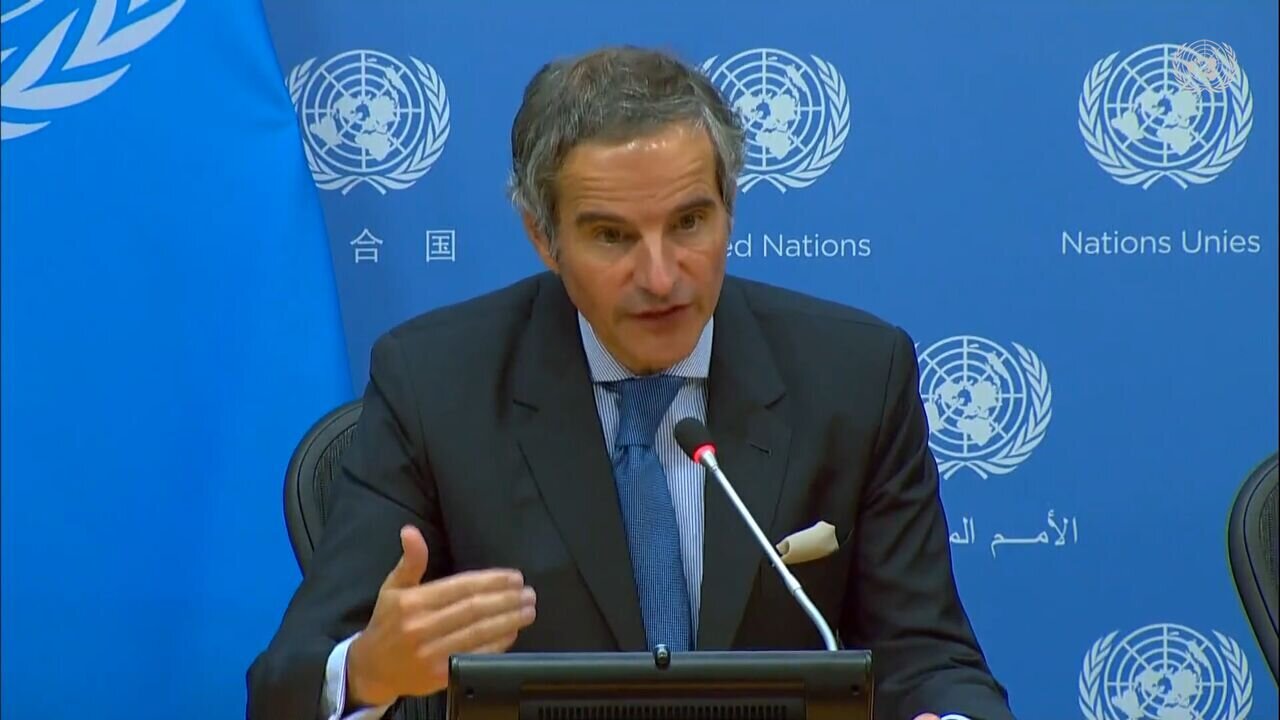Netanyahu lambastes IAEA chief for calling attacks on nuclear sites ‘illegal’

TEHRAN- The recent remarks made by head of the International Atomic Energy Agency (IAEA) that any military strike on Iranian nuclear installations would be unlawful have been slammed as “unworthy” by Israeli Prime Minister Benjamin Netanyahu.
Rafael Grossi stated on Saturday that any military strike on Iran’s nuclear facilities would be “illegal” and “outlawed,” as he was reacting to U.S. and Israeli military threats to hit them.
In a joint press conference in Tehran with Iranian nuclear chief Mohammad Eslami, Grossi stated, “I think any strike and any military attack on a nuclear site is unlawful, is out of the normative frameworks that we all follow by.”
The comments come amid rumors that the Biden administration has increased its military cooperation with Israel in recent weeks as negotiations over the Islamic Republic’s peaceful nuclear program have stalled.
At a meeting with his extremist cabinet on Sunday, Netanyahu argued that Grossi was a worthy person who made an unworthy remark.
“Against what law? Is it acceptable for Iran, a country that openly advocates for our annihilation, to put together the means of our obliteration? Do we have to refrain from self-defense? Obviously, we have permission to do this,” he continued.
Israel may and should take whatever action is necessary to deal with Iran, and we have got their back, according to U.S. Ambassador to Israel Tom Nides, who warned last month that “all options are on the table.”
The Israeli regime has made numerous covert attempts in recent years to undermine Iran’s peaceful nuclear program by assassinating Iranian scientists and carrying out sabotage acts at Iran’s nuclear facilities.
It is worth saying that Israel is a nuclear-armed regime that has refused to sign the nuclear Non-Proliferation Treaty (NPT).
In November 2022 the United Nations General Assembly voted 152-5 in favor of a resolution that demanded Israel destroy all its nuclear weapons arsenal and allow inspectors from the IAEA to visit its nuclear facilities.
The vote was undertaken by the UN's First Committee which deals with disarmament, global challenges and threats to peace that affect the international community and seeks out solutions to the challenges in the international security.
Four countries - Canada, Micronesia, Palau, and the United States - as well as the Israeli regime, opposed the resolution on the "risk of nuclear proliferation in the Middle East (West Asia)." Another 24 countries abstained, including some members of the European Union.
Leave a Comment